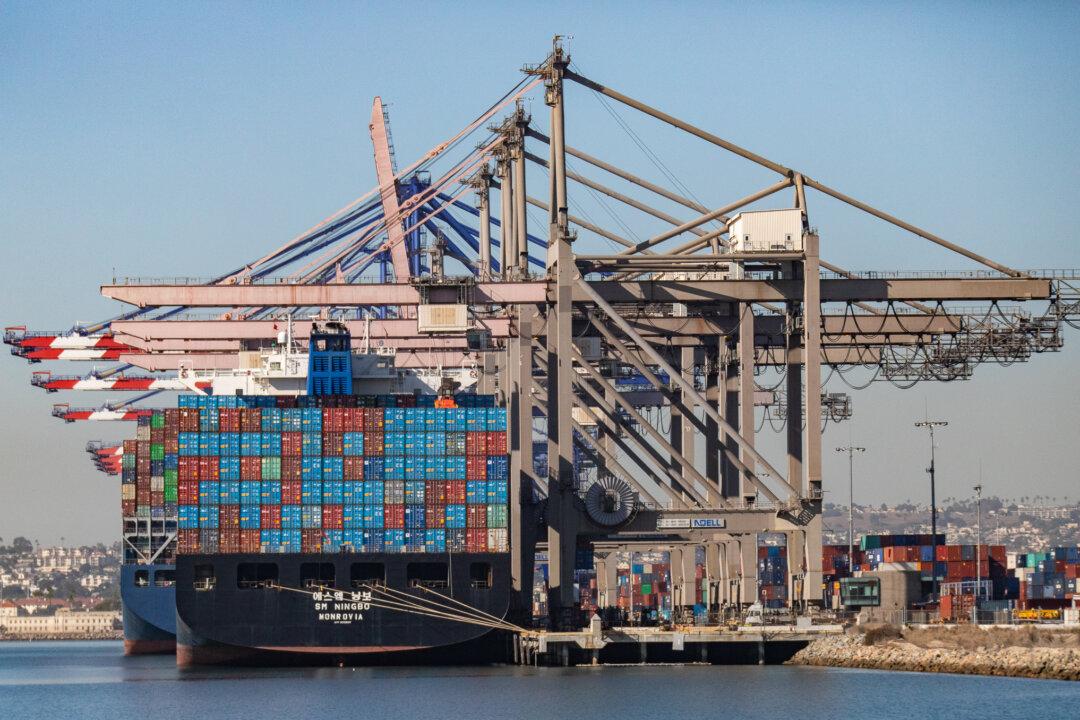LOS ANGELES—The International Longshore and Warehouse Union announced on Aug. 31 that its members have ratified a six-year contract between the union and the Pacific Maritime Association, representing the shipping industry, after nearly a year of negotiations and discord that plagued West Coast ports, including Los Angeles and Long Beach.
Members of the union have voted to ratify and approve a tentative contract agreement that was previously reached in June with employers represented by the association, according to a statement from the union. Union members voted 75 percent in favor of approving the new contract.





